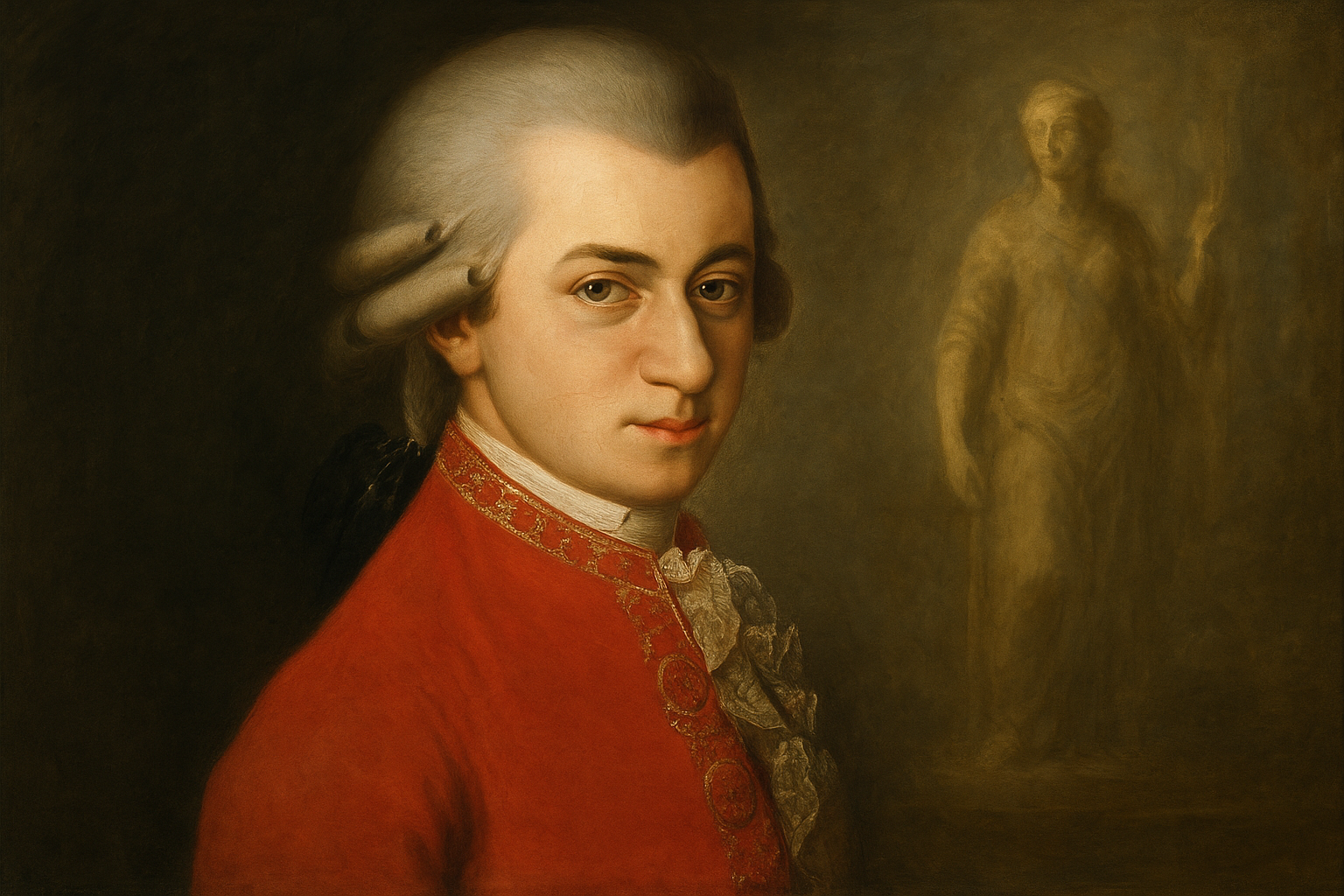The Human and the Holy: Mozart’s Quest for Balance in Music
Wolfgang Amadeus Mozart, a towering figure in classical music, crafted compositions that continue to resonate centuries after his death. His quest for balance between the human and the holy pervades his body of work, offering listeners a journey through divine inspiration tethered by profound emotion and human experience.
Human Emotion in Melody
Mozart’s genius lay in his ability to infuse a sense of humanity into music that could otherwise seem ethereal. His operas, such as The Marriage of Figaro and Don Giovanni, are vivid depictions of human life, brimming with imperfection and passion. Mozart deftly uses melody and harmony to convey complex emotions, capturing “the heart’s most hidden secrets without uttering a word,” as Albert Einstein noted in his reflections on music.
The Holy Through Harmony
While Mozart’s music is firmly rooted in human emotion, it also frequently reaches for the divine. His Requiem in D minor, composed during the last year of his life, embodies this balance. It is both a deeply personal piece and a transcendent exploration of the sacred.
“The music is not in the notes but in the silence between,” Mozart is often quoted as saying. This understanding of music as a vessel for the divine is what grants Mozart’s compositions an otherworldly quality.
A Synthesis of Worlds
Mozart’s ability to navigate between these two planes—human and holy—enabled him to reinvent the boundaries of his art. Works like his Great Mass in C minor highlight this duality, weaving together liturgical reverence with intricate counterpoint that reflects human struggle and triumph.
The synthesis of earthly concerns with spiritual quests reflected Mozart’s own life—filled with the joys of family and friends, yet punctuated by financial struggles and personal sorrows. This duality emerges vividly in his music, inviting audiences to explore their humanity within the context of the divine.
Legacy of Balance
Mozart’s enduring legacy speaks to his singular ability to balance these contrasting forces. As the acclaimed musicologist Neal Zaslaw has observed, Mozart’s works “achieve a synthesis and balance between the sacred and the secular” that continue to captivate and inspire.
In an era that often separated the realms of the sacred from the profane, Mozart’s compositions remain a testament to the power of music to unite these domains, offering a timeless exploration of both the depths of the human soul and the heights of the divine.
For further reading on the life and works of Mozart, consider visiting the Mozarteum Foundation.
